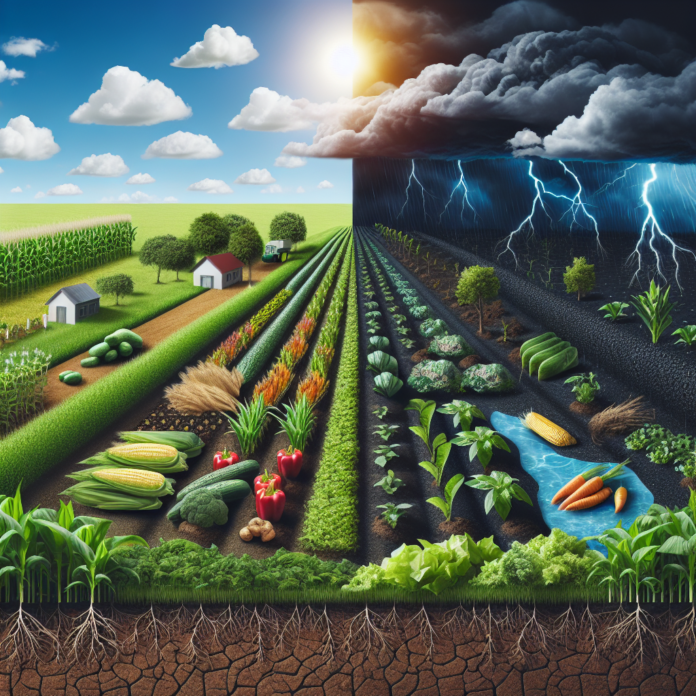Food Security Challenges Amid Climate Change
“`html
Food Security in the Era of Climate Change
As climate change continues to pose significant challenges globally, food security has emerged as a pressing concern. The intersection of rising temperatures, unpredictable weather patterns, and extreme weather events threatens agricultural productivity, leading to potential food shortages and increased prices.
The Impact of Climate Change on Agriculture
Climate change affects agriculture in multiple ways. Altered precipitation patterns can lead to droughts in some regions and floods in others, disrupting planting and harvesting schedules. Crops that are sensitive to temperature changes may experience reduced yields, while pests and diseases may thrive in warmer conditions, further jeopardizing food production. Additionally, the increased frequency and intensity of natural disasters can devastate farming communities, leading to long-term economic and food security challenges.
Vulnerable Populations and Food Insecurity
The most vulnerable populations, particularly in developing countries, are disproportionately affected by the effects of climate change on food security. Smallholder farmers, who rely on traditional farming methods, often lack the resources to adapt to rapidly changing environmental conditions. Food insecurity can lead to malnutrition, health issues, and increased poverty, creating a vicious cycle that is difficult to break.
Strategies for Enhancing Food Security
To combat these challenges, it is essential to implement adaptive strategies that enhance food security. This includes investing in climate-resilient agricultural practices, such as the development of drought-resistant crop varieties and the promotion of sustainable farming techniques. Governments and organizations must also focus on improving infrastructure, providing access to financial resources, and enhancing food distribution systems to ensure that food reaches those in need.
The Role of Policy and Global Cooperation
Effective policy frameworks and international cooperation are crucial in addressing food security in the context of climate change. Policymakers must prioritize sustainable agricultural practices and invest in research and technology to mitigate the impacts of climate change. Collaborative efforts at the global level can lead to shared resources, knowledge, and strategies that support food security initiatives across borders.
Conclusion
Food security in the face of climate change is a complex issue that requires immediate attention and action. By understanding the challenges posed by a changing climate and implementing adaptive strategies, we can work towards a more secure and sustainable food future for all.
“`


